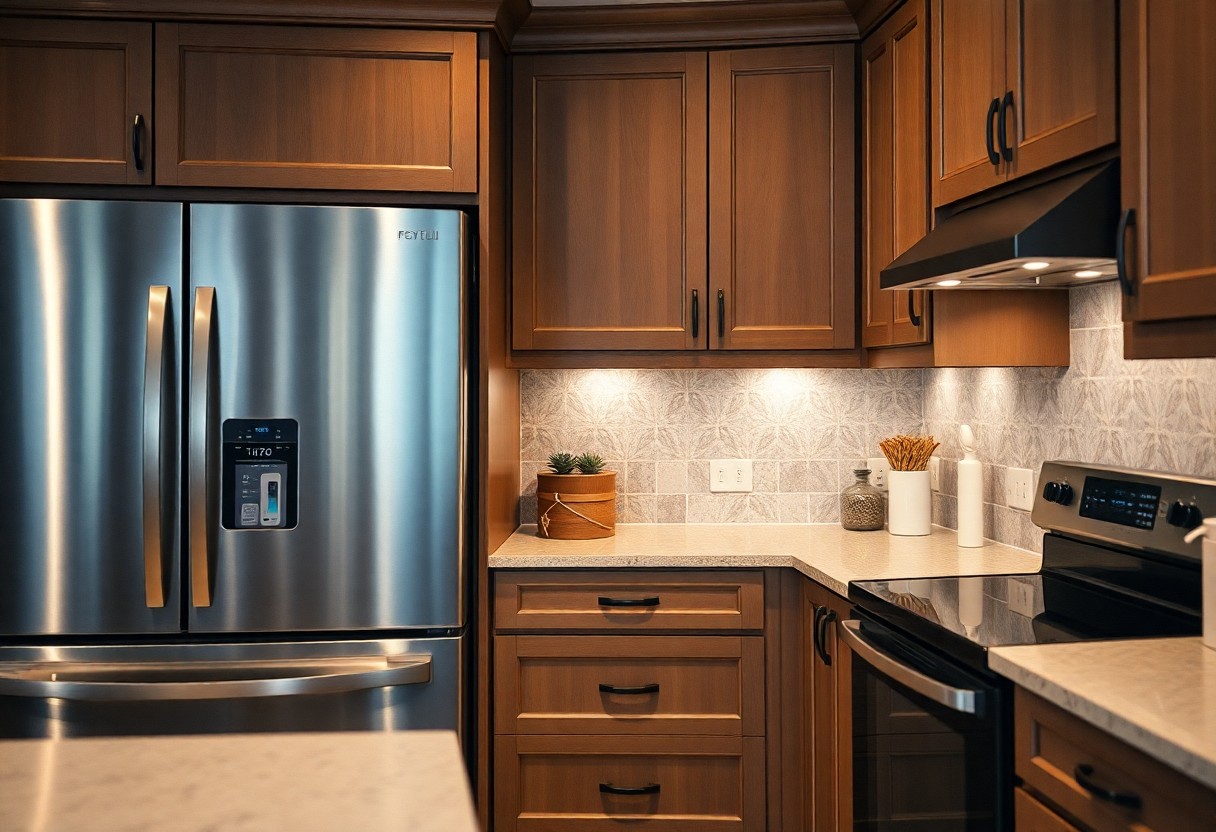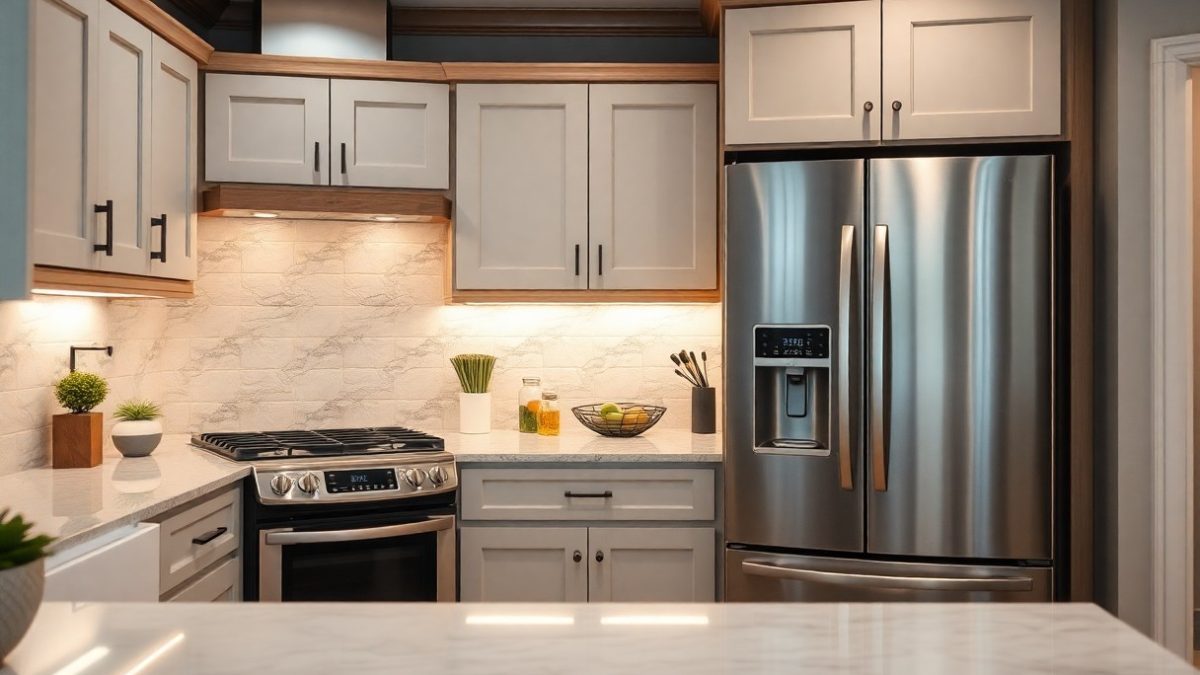
What Role Does Electromagnetic Compatibility Play In Appliance Installation Success?
November 4, 2024
What Esoteric Tools Enhance The Precision Of Electrical Appliance Installations?
November 6, 2024You may be surprised to discover how the integration of smart technology can significantly enhance your experience during conventional appliance installations. As homes evolve into smart environments, traditional appliances are being equipped with innovative features that streamline setup, improve efficiency, and offer advanced control options. This blog post will explore into the ways smart technology reshapes the installation process, making it not only more convenient for you but also contributing to a more energy-efficient and connected home. Join us as we explore the transformative impact of these advancements on your everyday life.
Understanding Smart Technology
Before delving into the impact of smart technology on appliance installations, it’s vital to grasp what smart technology entails. This innovative integration allows devices to connect, communicate, and perform autonomously, enhancing convenience and efficiency in your daily life. As you explore its influence on your home, you’ll see how this transformation changes traditional appliance functionalities.
Definition and Components
Across various domains, smart technology comprises various elements, including sensors, connectivity, and automation. These components work together to enable real-time data exchange, allowing you to control appliances from anywhere using smart devices. With a networked setup, you can enhance the overall efficiency and convenience of your home environment.
Benefits of Smart Technology in Homes
Against the backdrop of conventional appliances, smart technology offers numerous advantages in your home. By automating tasks, you can save time, improve energy efficiency, and enjoy greater convenience. Your daily routines can become seamless as smart systems learn and adapt to your preferences.
The integration of smart technology in your home delivers significant benefits that enhance your quality of life. You will experience improved energy savings, as devices can optimize their usage automatically, reducing utility costs. Additionally, the automation aspect streamlines your daily tasks, freeing up valuable time for the things that matter most. As smart devices learn from your habits, they can provide personalized experiences that cater specifically to your lifestyle, making your home not just smarter but also more comfortable and efficient.

Transforming Conventional Appliance Installations
Some homeowners are recognizing the advantages of integrating smart technology into their conventional appliance installations. This transformation not only enhances the functionality of appliances but also optimizes energy consumption and increases convenience. By replacing outdated systems with modern technology, you can create a more efficient and connected home environment that adapts to your lifestyle and preferences.
Modernization of Wiring and Infrastructure
One key aspect of modernizing your appliance installations is updating the wiring and infrastructure to support smart technology. This may involve upgrading electrical panels and ensuring that sockets are compatible with new devices. By investing in this modernization, you can improve the performance and safety of your appliances, while also paving the way for seamless integration of future technological advancements.
Integration Challenges and Solutions
Conventional appliances may present several integration challenges, especially when retrofitting into existing homes. These challenges can range from outdated wiring to compatibility with smart home systems. However, with the right approach and professional assistance, you can navigate these hurdles efficiently.
Challenges often arise during the integration of smart technology, particularly when dealing with older appliances that lack compatibility features or the necessary electrical infrastructure. You may encounter issues such as inadequate Wi-Fi coverage, outdated electrical systems, or limited user interfaces. Solutions often include professional inspections, upgrading your home’s Wi-Fi network, and selecting smart devices that are designed for compatibility with various systems. By understanding these challenges, you can more effectively implement smart technology while ensuring a smooth installation process.
Impact on Energy Efficiency
Clearly, the integration of smart technology into conventional appliance installations results in significant improvements in energy efficiency. Smart appliances utilize advanced sensors, algorithms, and connectivity to optimize energy consumption, allowing you to reduce your utility bills while minimizing your carbon footprint. By operating only when necessary and adapting to your lifestyle patterns, these devices contribute to a more sustainable home environment, promoting responsible energy use.
Smart Energy Management Systems
Against traditional systems, smart energy management platforms provide you with real-time insights into your energy consumption. These systems can analyze your usage patterns and suggest modifications to improve efficiency, enabling you to make informed decisions about when and how to use your appliances. By leveraging this information, you optimize your energy use while maintaining comfort and convenience in your home.
User Behavioral Changes
Systems designed with smart technology actively encourage you to adopt energy-efficient habits. By providing feedback and tracking your usage, these appliances help you become more aware of your habits. This awareness enables you to make intentional decisions regarding energy consumption, leading to long-lasting behavioral changes that enhance energy efficiency in your daily life.
The integration of smart technology encourages meaningful alterations in your energy consumption behavior. As you engage with your smart appliances, you’ll notice they often provide feedback or reminders about usage patterns, empowering you to adjust your habits accordingly. Over time, this might lead you to schedule high-energy tasks during off-peak hours or utilize energy-saving modes more frequently. As you adopt these changes, you’ll not only improve your energy efficiency but also contribute to a more sustainable future.
Enhancing User Experience
Unlike traditional appliances that often require complex setups and manual operation, smart technology streamlines your interactions, making appliance management more intuitive and user-friendly. This transformation allows you to easily integrate devices into your home through platforms designed for simplicity, as detailed in our guide on Smart Home Setup: Easy Appliance Integration. The result is a seamless and enjoyable experience that caters to your needs and preferences.
Automation and Remote Control
Below, the automation capabilities of smart technology empower you to control your appliances remotely, offering unparalleled convenience. With just a few taps on your smartphone, you can schedule tasks, receive notifications, and monitor energy usage, allowing you to optimize your routines and save valuable time.
Voice-Activated Systems
For those seeking an even more hands-free experience, voice-activated systems enable you to command your appliances simply by speaking. This innovative technology makes it possible for you to adjust settings, ask for updates, or start functions without lifting a finger, setting a new standard for home convenience.
A voice-activated system can significantly enhance your daily life by simplifying tasks and providing quick access to your appliances. Imagine walking into your kitchen and effortlessly instructing your coffee maker to start brewing or adjusting the temperature of your smart oven, all while your hands are occupied. Such functionality demonstrates how smart technology prioritizes user experience, allowing you to control your environment using natural language while fitting seamlessly into your lifestyle.
Safety and Security Enhancements
After integrating smart technology into your appliance installations, you’ll experience significant advances in safety and security. These innovations not only help in monitoring your home environment but also ensure your appliances operate efficiently, reducing risks of malfunctions and accidents. Smart features such as remote shut-offs, automatic alerts, and user notifications transform how you interact with your devices, providing peace of mind and enhancing your overall safety.
Smart Monitoring and Alarms
About smart monitoring and alarms, these systems enable you to keep an eye on your appliances and home security from anywhere. With real-time notifications sent directly to your smartphone, you can be alerted to unusual activity or potential hazards. This seamless integration allows you to address issues promptly, minimizing risks and ensuring your home’s safety.
Risk Mitigation Strategies
At the core of modern appliances are smart risk mitigation strategies that empower you to prevent accidents and damage. By leveraging technology, these strategies involve predictive analytics, automated fault detection, and remote management, allowing you to take proactive measures in safeguarding your home and belongings.
To enhance your risk mitigation strategies, consider implementing smart appliances that provide detailed usage data and diagnostics. These tools can help you identify potential issues before they escalate, such as detecting irregular energy consumption signals. Additionally, automated shutdown features can be programmed to deactivate appliances during specific conditions, ensuring that you and your loved ones are always shielded from mishaps. By adopting these technologies, you can create a safer living environment tailored to your unique needs.
Future Trends in Smart Appliance Installations
Many experts predict that the integration of smart technology into appliance installations will significantly reshape your living environment. Innovations such as AI-driven interfaces, enhanced energy efficiency, and seamless IoT connectivity will soon make devices smarter and more intuitive. As you adapt to these technologies, expect improved user experiences, offering you greater control and convenience in your daily routines.
Emerging Technologies
Emerging technologies will play a pivotal role in the transformation of your home appliances. From advanced sensors to machine learning algorithms, these innovations enhance the functionality of traditional appliances, providing you with real-time insights and automation capabilities. Your appliances will not only respond to your needs but also learn from your habits, optimizing their performance for maximum efficiency.
Predictions for the Smart Home Market
Market projections indicate that the smart home sector will continue to grow exponentially over the next few years. This growth will introduce increasingly sophisticated appliances that integrate seamlessly with your lifestyle, making them more energy-efficient and user-friendly. As technology advances, you’ll find that these devices not only connect with each other but also offer you centralized control through intuitive platforms.
The rise of smart home devices is expected to drive an increase in consumer demand, with a growing emphasis on energy efficiency and connectivity. As these products become more accessible, you can expect to see a shift towards homes that feature fully integrated smart technology ecosystems. With nearly every aspect of daily living becoming interconnected, your appliances will offer enhanced convenience, efficiency, and personalization, ultimately transforming the way you interact with your home.
Summing up
Presently, the integration of smart technology dramatically enhances how you approach conventional appliance installations. By incorporating smart features, your appliances become more efficient and versatile, allowing for remote access, energy monitoring, and seamless connectivity. This transformation not only optimizes your daily routines but also promotes sustainability in your home environment. As you embrace these innovations, you unlock a new level of convenience and control, ultimately redefining the way you interact with your household devices.

